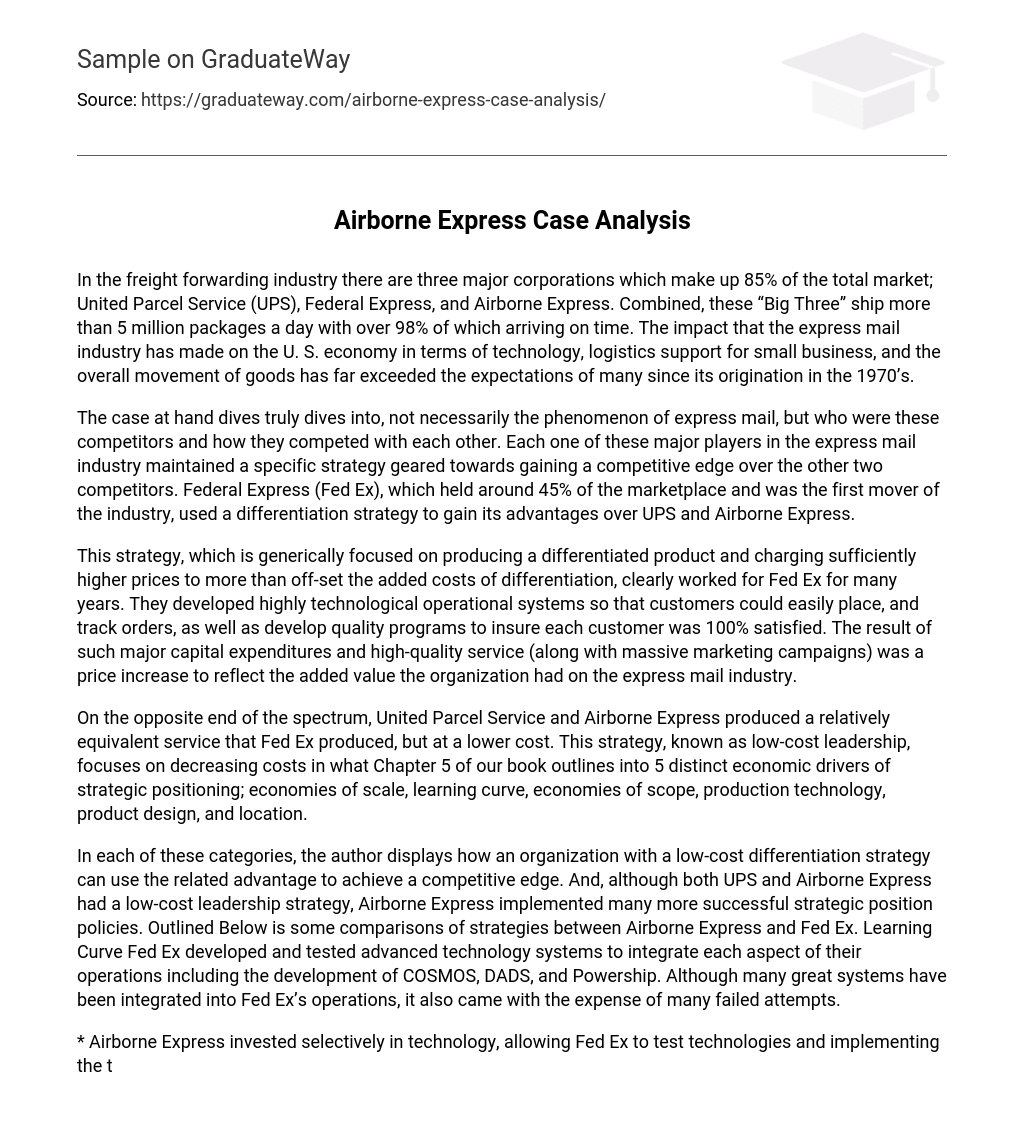Three corporations – United Parcel Service (UPS), Federal Express, and Airborne Express – control 85% of the freight forwarding industry. Collectively, they deliver more than 5 million packages every day with an exceptional on-time delivery rate exceeding 98%. Starting in the 1970s, the express mail sector has significantly impacted the U.S. economy by introducing technological advancements, supporting small businesses with logistics, and enabling efficient movement of goods beyond initial expectations.
The case examines the express mail industry, including its competitors and their tactics. Each major player had a distinct strategy to surpass the others. Fed Ex, which held 45% market share and was the industry’s leader, used differentiation to gain an advantage over UPS and Airborne Express.
This strategy, focused on creating a unique product and charging higher prices to cover the added costs of differentiation, proved successful for Fed Ex. They implemented advanced operational systems to simplify order placement and tracking for customers, and implemented quality programs to ensure customer satisfaction. As a result of significant investments and top-notch service, along with extensive marketing efforts, Fed Ex was able to raise prices to reflect the additional value they brought to the express mail sector.
United Parcel Service and Airborne Express offer a service similar to Fed Ex but at a lower cost, employing the low-cost leadership strategy. This strategy focuses on reducing costs by utilizing economies of scale, learning curve, economies of scope, production technology, product design, and location as outlined in Chapter 5 of our book.
The author showcases how an organization with a low-cost differentiation strategy can utilize the related advantage to gain a competitive edge in various categories. Both UPS and Airborne Express employed a low-cost leadership strategy, yet Airborne Express implemented a larger number of successful strategic position policies. The following provides a comparison of strategies between Airborne Express and Fed Ex. In terms of learning curve, Fed Ex designed and tested advanced technology systems to integrate all aspects of their operations, including COSMOS, DADS, and Powership. While Fed Ex has successfully integrated numerous systems into its operations, it also incurred the cost of several unsuccessful attempts.
Airborne Express selectively invested in technology, allowing Fed Ex to test and implement foolproof technologies. Fed Ex’s objective was to ship to any location overnight, establishing “fed exing” as a synonymous term for overnight shipping. With airport hubs nationwide, their reach was vast and efficient.
Airborne Express, on the other hand, concentrated their shipping operations in 50 major metropolitan cities, prioritizing areas with the highest population. They were considering a partnership with RPS to enhance their accessibility without requiring significant capital investment at the time of the case.





